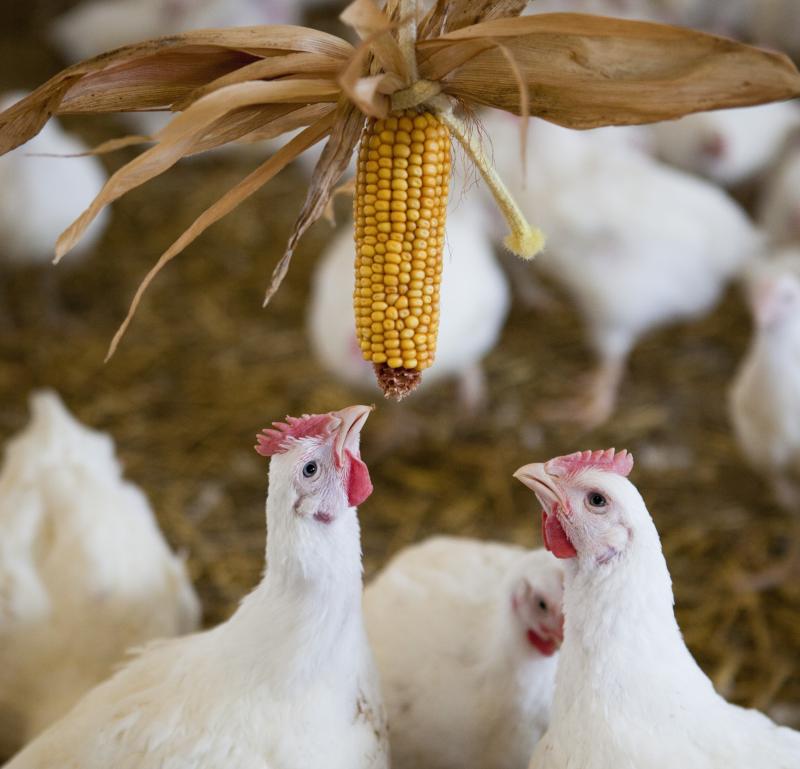
Retailer Marks and Spencer has committed to improving chicken welfare and has pledged to meet new requirements.
New welfare standards for broiler chickens have been demanded by a large coalition of European animal protection groups in a bid to improve welfare.
By 2026, suppliers have been urged to meet new requirements for 100% of the fresh, frozen, and processed chicken in the European supply chain.
This includes compliance with EU animal welfare laws and regulations, regardless of the country of production.
It also includes the implementation of a maximum stocking density of 30kg/m2 or less, adopt breeds that demonstrate higher welfare outcomes, improve environmental standards and adopt controlled atmospheric stunning using inert gas or multi-phase systems, or effective electrical stunning without live inversion.
More meat chickens are reared each year in the UK than any other animal.
Largest meat sector
Sophie Elwes, farm animal welfare specialist, at the RSPCA said: “More meat chickens are produced than any other terrestrial farm animal in the UK, with around 950 million reared each year. Globally, chicken is expected to become the largest meat sector in the world by 2020 as other countries also increase production.
“But despite this rapidly growing demand, there has been little progress made in improving the welfare of the majority of chickens bred for their meat.
“This January it will have been 10 years since chicken welfare was highlighted by celebrity chefs Jamie Oliver and Hugh Fearnley-Whittingstall and sadly there hasn’t been much progress as we hoped there would be.”
'Giant leap'
Recent polling shows that 8 out of 10 people (86%) who buy chicken meat expect the supermarkets to ensure that all chicken meat they sell is farmed to high welfare standard.
Sophie Elwes added: “This move by M&S is a giant leap in the right direction for chickens and consumers, and we commend their decision to kickstart this movement and lead the field.”
Marks & Spencer head of agriculture Steve McLean said: “Animal welfare is at the heart of our business and we know how important it is to our customers.
“I’m proud of our record, however it is my responsibility to push the boundaries. We will therefore begin a series of trials in January designed to test the new standards and how they work in a commercial farming supply chain.”
All the major retailers in the United Kingdom have already said that they will stop selling cage eggs by 2025.
Many leading foodservice companies have made the same commitment, although the egg industry is still trying to understand what will replace the existing enriched cages when the retailers abandon them.
